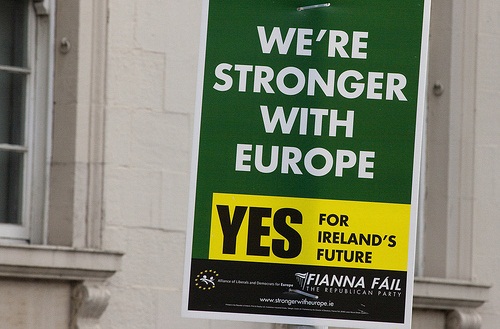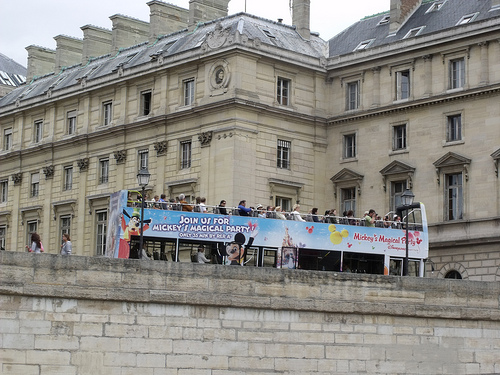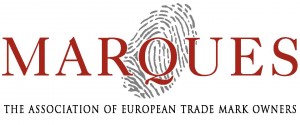 In February this year the European trademark community took note of a leaked version of the European Commissions’s draft trademark legislation in reaction to the widely discussed Study on the Overall Functioning of the European Trademark System presented by the Max Planck Institute for Intellectual Property in February 2011 (pdf, 4.5 MB).
In February this year the European trademark community took note of a leaked version of the European Commissions’s draft trademark legislation in reaction to the widely discussed Study on the Overall Functioning of the European Trademark System presented by the Max Planck Institute for Intellectual Property in February 2011 (pdf, 4.5 MB).
The so called ‘leaked proposal’, which immediately received a considerable press coverage (see e.g. WTR or MIP), basically consists of two draft regulations and one draft directive:
- draft amended Council Regulation No 207/2009 on the
CommuniyEuropean Trade Mark, - draft amended Regulation (EC) No 2868/95 on the fees payable to the OHIM,
- proposal for a Directive to approximate the laws of the Member States relating to trademarks (Recast).
The leaked proposal is a pre-final text which gives extensive insight into the EU Commission’s plans to substantively refurbish the Community Trademark (CTM) system as we know it today.
The reasons why and by whom the legislative proposal was ‘leaked’ instead of being officially published on the EU servers lie in the dark, but it can be assumed that the political intentions outweigh the legal ones. As the drafts have been sent, inter alia, to the member organisations of the so called OAMI Users’ Group, a consortium of international NGO’s active in the IP sector and accredited to the OHIM, the leaker apparently intends to provoke a reaction of stakeholders, for instance to test the acceptance of the new legislation in a more conspirative way instead of risking open and public criticism.
The MARQUES association considers itself as a defender of trademark owner’s and system user’s interests. Compared to other member organisations of the OAMI Users’ Group, MARQUES appears to be more interested in a public discussion as it now again involved the public in a discussion that many other stakeholders consider a topic for closed expert circles only. The extensive comments (pdf, also here) published yesterday (20 March 2013) also include a detailled summary of the substance of the draft legislation.
By this open approach MARQUES refuses to become a silent accomplice of the leaker and his political interests and, even more important, reminds lawmakers that openness and public consultation are vital to a democratic community and the acceptance of its laws.
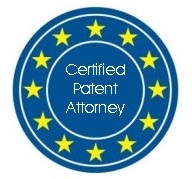 Inspired by this discussion of our recent posting on the latest draft UPC rules of procedure it appears to be high time to have a closer look into Article 48 UPC and related Rule 286 RoP in order to possibly figure out the legislator’s idea of representation rights.
Inspired by this discussion of our recent posting on the latest draft UPC rules of procedure it appears to be high time to have a closer look into Article 48 UPC and related Rule 286 RoP in order to possibly figure out the legislator’s idea of representation rights.
As European and German patent attorneys we still remember the recommendation of the 2006 Venice Patent Judges Symposium according to which only “attorneys-at-law who are fully entitled to represent parties in ordinary civil proceedings in the courts of first instance of the convention states” should be authorised to represent cases before the UPC (see Venice II resolution, page 11, item 5). Later, at the peak of the lobbying battle for representation rights (see e.g. here and here) also the European Parliament’s JURI Committee and its influential rapporteur Klaus-Peter Lehne, an attorney-at-law and partner of international law firm Taylor Wessing, urged it is of “utmost importance” that
the parties should be represented only by lawyers authorised to practise before a court of a Contracting Member State; the representatives of the parties might be assisted by patent attorneys who should be allowed to speak at hearings before the Court [2011/2176 (INI)]
Different voices came from industry organisations, patent practitioners and academia, who raised for good reasons (see here, here, here) that European Patent Attorneys should be authorised to represent their clients before the UPC as well.
Before this background, Article 48 UPCA can be understood as an acceptable compromise:
(1) Parties shall be represented by lawyers authorised to practise before a court of a Contracting Member State.
(2) Parties may alternatively be represented by European Patent Attorneys who are entitled to act as professional representatives before the European Patent Office pursuant to Article 134 of the EPC and who have appropriate qualifications such as a European Patent Litigation Certificate.
(3) The requirements for qualifications pursuant to paragraph 2 shall be established by the Administrative Committee. A list of European Patent Attorneys entitled to represent parties before the Court shall be kept by the Registrar.
(4) … (7)
According to this provision, basically three groups of professionals are authorised to independently represent cases before the UPC, namely
- Lawyers,
- European Patent Attorneys having the European Patent Litigation Certificate, and
- European Patent Attorneys having an appropriate qualification.
As recently reported on this blog, the Unitary Patent Project of the European Union has been driven some big steps forward during December last year. The crucial dates were:
- 10 Dec 2012: The European Council endorses the EU Unitary Patent Package.
- 11 Dec 2012: The Advocate General of the CJEU hands down his opinion to dismiss the appeals of Spain (C-274/11) and Italy (IC-295/11) against enhanced cooperation in the field of unitary patent protection.
- 11 Dec 2012: The European Parliament approves the EU Unitary Patent Package.
- 17 Dec 2012: The European Council approves the EU Unitary Patent Package.
The texts finally adopted and approved by the competent EU institutions are the following:
- Proposal for a regulation implementing enhanced cooperation in the area of the creation of unitary patent protection, Regulation EU 1257/2012 (cf. consolidated text of 17/12/12 (PE-CONS 72/1/11); texts adopted on 11/12/12; cf decision-making monitor and procedure file),
- Proposal for a regulation implementing enhanced cooperation in the area of the creation of unitary patent protection with regard to the applicable translation arrangements, Regulation EU 1260/2012 (cf. consolidated text of 12/12/12 (18855/2/11 REV 2); texts adopted on 11/12/12; cf. decision-making monitor and procedure file),
- Resolution on jurisdictional system for patent disputes (cf. latest draft agreement of 14/11/12; texts adopted on 11/12/12; cf. procedure file).
While the political class is celebrating its ultimate success (e.g. Commissioner Michel Barnier, the Council Presidency, the EU Parliament, and the EPO with its President Benoît Battistelli), the political driving forces predict (and expect) even more ambitious progress on the final meters of implementing the new post-grant patent infrastructure in (some parts of) Europe:
- 18 Feb 2013 – Signature of the UPC Agreement and start of the ratification process (UPC will enter into force upon 13 ratifications, including mandatory ratifications in UK, France and Germany, cf. Art. 59 UPC Agrmnt),
- 01 Nov 2013 – Full ratification of UPC Agreement expected,
- 01 Apr 2014 – Issuance of first unitary patents by EPO and Unified Patent Court ready to receive first cases.
The project, however, is not at all cut and dried and there certainly is no automatism leading to its implementation within the 25 EU member states that originally supported enhanced cooperation. In fact, there are more challenges ahead than one may expect, especially with respect to the national ratification processes, which are required as the UPC Agreement, as an international treaty, will transfer statutory legal rights (i.e. national patent jurisdiction) to the European level.
After the last-minute amendments of the Unitary Patent Regulation (UPR) by the European Council on 28/29 June, who suggested
that Articles 6 to 8 of the Regulation [...] to be adopted by the Council and the European Parliament be deleted
lead to a removal of this matter from the EU Parliament’s agenda and unleashed a wave of revulsion among members of the EU Parliament in general and those of its legal committee (JURI) in particular (see here and here), the direction in which today’s JURI meeting would go was not utterly hard to predict.
And in fact, today’s press release confirmed what could have been expected anyway:
The European Council’s move to change the draft law to create an EU patent would “infringe EU law” and make the rules “not effective at all“, Bernhard Rapkay (S&D, DE), who is responsible for the draft legislation, told the Legal Affairs Committee on Tuesday. Most MEPs strongly criticised the European Council’s move and agreed to resume the discussion in September.
Apparently, this opinion is backed by the Parliament’s legal service, assuming that deleting Articles 6 to 8 UPR would “affect the essence of the regulation” thus be incompatible with EU law.
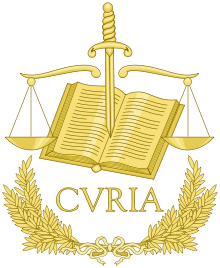 As reported, last week’s European Council summit has reached an agreement on the EU Unified Patent and a EU Unified Patent Court after volatile negotiations on 29 June 2012.
As reported, last week’s European Council summit has reached an agreement on the EU Unified Patent and a EU Unified Patent Court after volatile negotiations on 29 June 2012.
The EU Council thus made a big step forward on its way to achieve the final goal, as expressed in the annex of Doc 10059/12 of 24 May 2012:
On the 1st of April 2014 the system should be ready for the first registration of a European patent with unitary effect.
However, a number of steps – and one big legal problem – still remain to be taken. Already this July, the EU Parliament will have its first plenary session on the EU Patent Package that was postponed on 19 December 2011 by JURI (cf. minutes) and the EU Council will consider the issue as well:
- 3./4. July 2012: Parliamentary deliberations and votes on the three aspects of the “EU Patent Package” (unitary patent, translation arrangement, unified patent court);
- July 2012: Adoption of the Unitary Patent Regulation (unitary patent, translation arrangement) by the EU Council.
But it cannot be expected that the process will run smoothly, as the top-level negotiations at last week’s EU Summit ‘suggested’ – apparently under the pressure of David Cameron and eurosceptic Tory MPs lead by Bill Cash, Chairman of the influential Scrutiny Committee and ‘herald of the apocalypse‘ -
that Articles 6 to 8 of the [Unitary Patent] Regulation [...] to be adopted by the Council and the European Parliament be deleted.
Some days ago we reported on a press report basically saying that Munich has been dropped out of the hard fought race for the seat of the Central Division of the future EU Unified Patent Court:
[...] Munich seems to be out of the running, Paris appears to be the favourite and London could win a few laurels.
Paris as the court location appears to be backed by the President of the EU Council, Herman Van Rompuy, while it is speculated that
[t]he smart money appears to be on Paris at the moment, but diplomats warn that it’s still anyone’s guess whether a deal will be reached.
Now, on the eve of the decisive EU Summit, another article clarifies that Van Rompuy’s compromise plan, being the “result of consultation with the most concerned member states”, in fact proposes to share the location of the court between Paris, London and Munich. According to this plan, the official seat of the court’s central division, its president’s office and registry will reside in Paris, while some departments will be based in London and in Munich:
Given the highly specialised nature and quality standards, we also propose to create specialised clusters in two sections of the UPC, one in London, the other in Munich, which will continue to deal with administrative matters.
As the wording ‘administrative matters’ appears to exclude – for now – that court chambers will be established in London or Munich, one may ask what kind of administrative support can be given by Munich and London if even the registry is bound for Paris.
However, even though all these rumours cetrainly have a core of truth, it is also true that the race will not be decided by ‘smart money’ but by the EU Heads of Government on the EU Summit on 28/29 June 2012. It is further true that the outcome will highly depend on and be strongly linked to the much more important negitiations as to how the EU depth crisis can be effectively tackled. And this central issue will be dominated by the antagonism between the EU leaders who dramtically proposed a ‘Grand Plan‘ (pdf here) to safe the eurozone and Federal Chancellor Angela Merkel, who is prepared to rule out eurobonds “as long as I live“. Hence, there remains plenty of room for discussion and compromise – also on the seat issue.
(Photo 2009 by El Brown via Flickr under a CC license)
To answer the above question right away, I do not hope so because otherwise the future of the European Community/Union, the great idealistic and visionary European project, would lie in ruins already. As a patent professional and keen enthusiast of the European idea, please allow me to share some personal comments based on the findings of my earlier posting on the Deficiencies of the EU Legislative Process for Implementing a Unified Patent Infrastructure, namely
- ignorance as to users and experts and their (mostly) well-founded observations;
- a striking lack of transparency preventing public involvement;
- an information policy that disguises more than it discloses; and
- national egoisms, inappropriate horse-trading and power games.
As already expressed earlier, I think that these frightening mechanisms and structural deficiencies of the European policy-making process may endanger stability and acceptance of and confidence in the European Union as a whole. As none of those features is adequate for a democratic legislation process in a cooperating Europe, the conclusion might be that Europe’s democracy is in danger. This, apparently, is at least the opinion of Mr Martin Schultz, President of the European Parliament, who recently demanded that a “restart” of European democracy is required, as “the Union must make the decision-making process more transparent so that a genuine European public sphere can emerge”. Well roared, lion!
After months of intense debate in the EU Council and the EU Parliament’s Legal Affair’s Committee (JURI), the European Parliament was scheduled to have its fist plenary session on the EU Patent Package (Unitary Patent Regulation, Language Regime Regulation, Unified Patent Court Agreement) on coming Wednesday, 14 February 2012.
While Google Search still delivers an entry “Plenary sitting – European Parliament Tuesday, 14 February 2012 Draft agenda. 09:00 – 10:20 Debates. European patent. Creation of unitary patent protection.“, the final draft agenda now announces a Fisheries debate instead.

Absent of any reliable source the tea leaves give some cryptic clues: Munich on schedule, London delayed, Paris vanished?
The story so far. As we all know, the talks on the new EU-wide patent infrastructure (consisting basically of the Unitary Patent Regulation and the Unified Patent Court Agreement) run aground in late December despite quite some rounds of negotiations producing encouraging press releases according to which the so called ‘EU Patent Package’ was considered “broadly accepted in substance”. However, at the end of the Polish EU Presidency‘s half-year term, the adoption of the “Warsaw Patent Convention” – a term coined by Polish Deputy Prime Minister Pawlak – could not be celebrated as expected due to ongoing dissension.
Even though it was spread after the failed Competitiveness Council of December 5/6 through semi-official channels (e.g. tweets and press report) that the whole deal was almost done and only the seat of the central division of the Unified Patent Court remained to be decided, real doubts and harsh criticism almost immediately occurred and stakeholders saw an opportunity to again open the discussion on various substantive legal issues (see e.g. EPLAW resolution, FICPI position paper), such as on Articles 6 to 9 of the Regulation (effects of patents) that require substantive patent law to be subject to review by the CJEU.
Despite ongoing controversies and criticism (“desaster“, “bound to fail“) as to substantive issues, the politicians declared the dice cast for the Unitary Patent so that the Regulation was not unwrapped again for negotiations as to the legal merits. In fact, the Regulation for the Unitary Patent meanwhile got a green light from the powerful legal committee (JURI) of the EU Parliament in late December and the EU Council began to linguistically finalise the Regulation text in early January.
EU Patent Package: JURI has Spoken, But What did it Say? (UPDATE)
Yesterday the members of the EU Parliament’s Legal Affairs Committee (JURI) voted in three separate sessions on the EU patent package (see nos. 18 to 21 of agenda):
- Enhanced cooperation in the area of the creation of unitary patent protection, JURI/7/05848, Rapporteur: Bernhard Radkay (S&D).
- Enhanced cooperation in the area of the creation of unitary patent protection with regard to the applicable translation arrangements, JURI/7/05847, Rapporteur: Raffaele Baldassarre (PPE).
- Jurisdictional system for patent disputes, JURI/7/06168, Rapporteur: Klaus-Heiner Lehne (PPE).
Fitting into the parliamentary tradition of issuing celebrating press releases when it comes to the future EU patent system, like
- A step closer to an EU patent (22 Nov 2011) or
- Done deal on the EU patent? (01 Dec 2011),
yesterday’s post-vote press statement was titled
- EU patent gets Legal Affairs Committee green light (20 Dec 2011),
disclosing, besides the well-known mantras as to the beneficial effects of the new European patent system, the liberating message that
Legal Affairs Committee MEPs backed a political deal struck last 1 December between Parliament and Council negotiators on the so-called “EU patent package” [...]. If Parliament as a whole and the Council confirm the deal, a new EU patent will be created.
The k/s/n/h::law blog
Some of the patent attorneys of the KSNH law firm have joined their efforts to research what is going on in the various branches of IP law and practice in order to keep themselves, their clients as well as interested circles of the public up to date. This blog is intended to present results of such efforts to a wider public.
Blog Archives
- November 2013 (2)
- October 2013 (1)
- September 2013 (1)
- August 2013 (2)
- July 2013 (3)
- June 2013 (5)
- March 2013 (5)
- February 2013 (4)
- January 2013 (5)
- December 2012 (5)
- November 2012 (5)
- July 2012 (5)
- June 2012 (8)
- May 2012 (5)
- April 2012 (3)
- March 2012 (4)
- February 2012 (5)
- January 2012 (6)
- December 2011 (12)
- November 2011 (9)
- October 2011 (9)
- September 2011 (4)
- August 2011 (7)
- July 2011 (4)
- June 2011 (1)
Blog Categories
- business methods (6)
- EPC (7)
- EPO (12)
- EU law (92)
- ACTA (8)
- CJEU (4)
- Comitology (1)
- competition law (2)
- Enforcement (6)
- EU Unified Patent Court (62)
- FTA India (1)
- TFEU (2)
- Trade Marks (5)
- European Patent Law (37)
- German Patent ACt (PatG) (1)
- German patent law (5)
- Germany (6)
- Pirate Party (3)
- International Patent Law (4)
- PCT (2)
- IP politics (10)
- licenses (2)
- Litigation (5)
- Patentability (7)
- Patents (12)
- Piratenpartei (2)
- Software inventions (10)
- Uncategorized (9)
- Unitary Patent (24)
- US Patent Law (4)
Comments
- kelle on Germany: Copyright Protection More Easily Available For Works Of “Applied Arts”
- Time Limits & Deadlines in Draft UPCA RoP: Counting The Days - KSNH Law - Intangible.Me on Wiki Edition of Agreement on Unified Patent Court Agreement (UPCA)
- Time Limits & Deadlines in Draft UPCA RoP: Counting The Days | ksnh::law on Wiki Edition of Agreement on Unified Patent Court Agreement (UPCA)
- Wiki Edition of Agreement on Unified Patent Cou... on Wiki Edition of Agreement on Unified Patent Court Agreement (UPCA)
- European Commission Takes Next Step Towards Legalising Software Patents in Europe | Techrights on EU Commission publishes Proposal of amendend Brussels I Regulation for ensuring Enforcement of UPC Judgements
Blogroll
- 12:01 Tuesday
- America-Israel Patent Law
- Anticipate This!
- AwakenIP
- BlawgIT
- BLOG@IPJUR.COM
- BP/G Radio Intellectual Property Podcast
- Broken Symmetry
- Class 46
- Director's Forum: David Kappos' Public Blog
- Gray on Claims
- I/P UPDATES
- IAM Magazine Blog
- Intellectual Property Intelligence Blog
- IP Asset Maximizer Blog
- IP CloseUp
- IP Dragon
- IP Watch
- IP Watchdog
- IPBIZ
- ipeg
- IPKat
- ITC 337 Law Blog
- Just a Patent Examiner
- K's Law
- MISSION INTANGIBLE
- Patent Baristas
- Patent Circle
- Patent Docs
- Patently Rubbish
- PatentlyO
- Patents Post-Grant
- Reexamination Alert
- SPICY IP
- Tangible IP
- The 271 Patent Blog
- The Intangible Economy
- THE INVENT BLOG®
- Think IP Strategy
- Tufty the Cat
- Visae Patentes
The KSNH blogging landscape


This blog and the German-language sister blog k/s/n/h::jur link to the two popular and privately run blogs IPJur und VisaePatentes and continue their work and mission with a widened scope and under the aegis of our IP law firm.
ksnhlaw on Twitter
- No public Twitter messages.
 KSNH::JUR Feed (german)
KSNH::JUR Feed (german)- Ist Verschlüsselung passé? September 6, 2013Auf verschiedenen Feldern beruflicher Praxis ist dafür zu sorgen, dass Kommunikation vertraulich bleibt. Die trifft beispielsweise für Ärzte zu, aber auch für Anwälte, darunter auch Patentanwälte. Einer der zahlreichen Aspekte, die in diesem Zusammenhang eine Rolle spielen, ist die Technik, um die Vertraulichkeit beruflicher Kommunikation sicherzustellen. Wa […]
- EU-Einheitspatent: Demonstrativer Optimismus und Zahlenmystik allerorten – Naivität oder politische Beeinflussung? June 26, 2013Nach mehreren vergeblichen Anläufen zur Schaffung eines EU-weiten Patentsystems wurde 1973 als Kompromiss das Europäische Patentübereinkommen unterzeichnet, welches unabhängig von der seinerzeit noch EWG genannten Europäischen Union System zur zentralisierten Patenterteilung mit nachgeordnetem Einspruchsverfahren durch das Europäische Patentamt schuf. Wie wi […]
- Moderne Zeiten oder: DPMA und Patentgericht streiten über die elektronische Akte April 25, 2013Bekanntlich hat das Deutsche Patent- und Markenamt (DPMA) im Jahre 2013 mit der rein technischen Fertigstellung der Einrichtungen zur elektronischen Akteneinsicht einen wichtigen Meilenstein seines Überganges von der Papierakte zur “elektronischen Akte” erreicht. Im DPMA werden aber bereits seit dem 01. Juni 2011 Patente, Gebrauchsmuster, Topografien und erg […]
- Gutachten zu Forschung, Innovation und technologischer Leistungsfähigkeit Deutschlands 2013 March 11, 2013Unter dem Datum vom 28. Februar 2013 ist die Bundestags-Drucksache 17/12611 veröffentlicht worden Sie trägt den Titel Unterrichtung durch die Bundesregierung - Gutachten zu Forschung, Innovation und technologischer Leistungsfähigkeit Deutschlands 2013. Die Bundesregierung legt dem Deutschen Bundestag seit dem Jahr 2008 […]
- 3D-Printing: Zum Filesharing von 3D-Modelldaten February 25, 2013In meiner kleinen zuvor angekündigten Reihe über rechtliche Aspekte des 3D Printing komme ich heute auf die Frage zu sprechen, ob die Hersteller von Gerätschaften es hinnehmen müssen, wenn Ersatztreile davon – vom Brillengestell über Smartphone-Gehäuseteile bis hin zu Rastenmähermotor-Abdeckungen – gescannt und die daraus […]
- Ist Verschlüsselung passé? September 6, 2013

